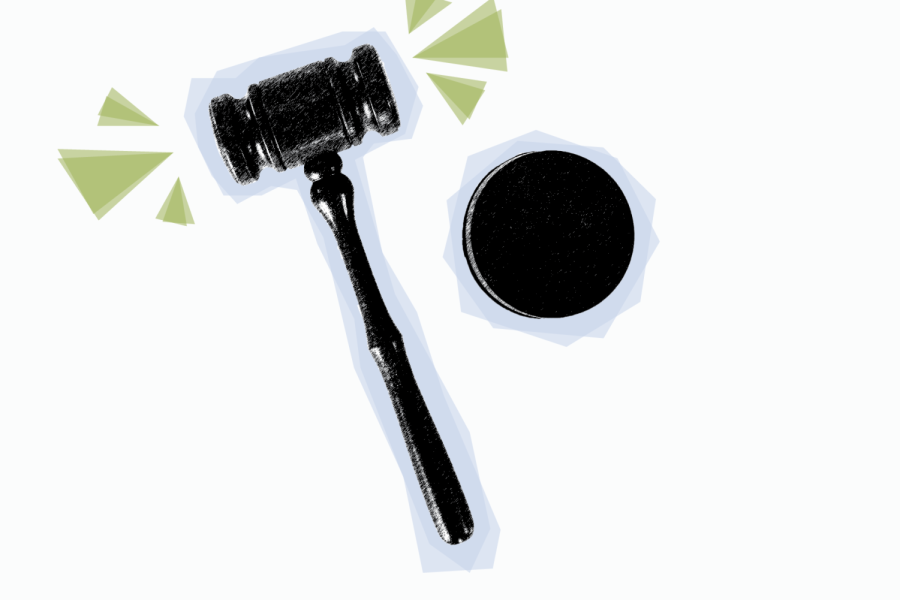Feb. 24 marked the 1-year anniversary of the Russian invasion of Ukraine.
March 30 was the twentieth anniversary of the U.S. invasion of Iraq.
A couple of weeks before that, on March 17, the International Criminal Court (ICC) issued a warrant for the arrest of Russian President Vladimir Putin for war crimes committed during the invasion of Ukraine.
One would think the U.S. government would be doing everything it could to help the ICC prosecute Putin. Last September, President Biden said Russia’s conduct in Ukraine “should make your blood run cold.”
Evidently, though, the blood of some U.S. officials is running nice and warm. In March, the New York Times reported that intelligence agencies, as well as the Departments of State and Justice, favored sharing evidence of Russian atrocities with the ICC. However, some military leaders opposed doing so, arguing that it could set a precedent that might lead to the court prosecuting Americans.
I do support criminal justice reform. But, even I have to say the best way to not get prosecuted for war crimes is to not commit war crimes.
But, maybe the Pentagon brass have a point. After all, U.S. leaders haven’t always covered themselves in glory when it comes to the laws of war. The legality of the Iraq invasion has been hotly debated. Former President Donald Trump pardoned Clint Lorance, an Army lieutenant who was convicted of second-degree murder by a military jury.
Fionnuala Ní Aoláin is a law professor at the University of Minnesota and a United Nations special rapporteur for counter-terrorism and human rights. She once led an expert review for the ICC’s Trust Fund for Victims. She doesn’t think the Lorance case would lead to ICC prosecution of Americans.
“Countries argue, ‘Oh, that one guy who got pardoned is gonna bring us into the ICC territory,’” Ní Aoláin said. “That’s just not consistent with the reality of how the court operates.”
The U.S. has been remarkably hostile to the ICC in comparison to other rich democracies, Ní Aoláin said. The Rome Statute, which created the ICC, was signed by President Bill Clinton.
“Signing doesn’t bind a state to a treaty,” Ní Aoláin said. “It simply says, we support it in kind of an abstract way, and we won’t do anything to hinder the operation of this body.”
President George W. Bush declared he would un-sign this treaty.
From the perspective of international law, you can’t un-sign a treaty, Ní Aoláin said. “But we take that as a symbolic gesture that said the U.S. was not gonna support, and it was actually gonna work actively to undermine the ICC,” she said.
In some cases, the U.S. actively tried to hinder the ICC, Ní Aoláin said. For instance, the Trump administration threatened to impose sanctions on entities or individuals associated with the ICC. This order was revoked by the Biden administration. This is part of a broader pattern. Relations with the ICC got better under President Barack Obama and then swung back under Trump, Ní Aoláin said.
Some Americans have raised principled critiques of the court. For instance, the ICC lacks some protections for the accused that are present in the U.S. legal system.
Robert Stein is a law professor at the University and former executive director of the American Bar Association. He used to be co-chair of the International Bar Association Rule of Law Action Group.
“The court doesn’t have the constitutional safeguards that all Americans enjoy,” Stein said. “The right to face accusers, privilege against self-incrimination, the right to know the charges against a person.”
However, the ICC has implemented something called complementarity. If a war criminal is charged in a country’s domestic legal system, and that system looks like it will give a fair trial, the ICC will not prosecute its own case.
“It’s not perfect, and there’s no guarantee that the international court will waive a trial,” Stein said. “But for those countries that want this international institution of justice, it’s a way of accommodating their objections as much as possible.
Ultimately, Stein said he does think the U.S. should join the ICC.
“It’s long been the wish of many people who believe in international justice to have some tribunal that can hold countries and individuals for crimes that are international crimes,” he said. “This is mankind’s best effort so far.”
Ní Aoláin didn’t agree that the ICC lacks necessary protections for the accused. “I think that’s a kind of parochial view, actually,” she said. “Every system has its own balance of protections.”
She said common law systems like the U.S. and civil law systems like France have different approaches to the presumption of innocence. “We don’t walk around saying you should never get arrested in a non-common law country,” Ní Aoláin said.
In fact, in some ways, protections in the U.S. system are lacking.
“There are some things that the U.S. does that many would consider antithetical to fair trial,” Ní Aoláin said. “Like the scale of plea bargaining that happens in this country.”
Almost all criminal convictions in the U.S. come not from trials, but from plea bargains.
Another critique of the ICC is its narrow geographic focus. Since it began in 1998, every single person indicted by the ICC has been African.
Ní Aoláin said this is partly the result of the ICC’s role as a court of last resort.
“I think it’s unfortunate that we’ve had the vast majority of cases coming from one continent,” she said. “But it’s also important to remember a couple of things about those referrals.”
In some cases, she said, it’s the countries themselves who are referring cases to the ICC if they can’t do the prosecution on their own.
In addition, she said, “It speaks to the reality that we have many countries in which there are primarily conflicts taking place where those countries do not have the capacity. They don’t have functional courts.”
Part of the solution, she said, is to invest in these countries’ legal systems so that they’re able to better prosecute these crimes.
There are multiple countries in Africa that meet those conditions. But one continent does not have a monopoly on dysfunction and disorder.
In 2021, Cornell professor Oumar Ba wrote in Foreign Affairs that the institutions of the international justice system “point to the contradictions of the liberal world order, which espouses universality in theory but in practice exonerates the West while disciplining and condemning the rest.”
Ní Aoláin pointed to a couple of investigations outside of Africa, including in Colombia and the occupied Palestinian territories. The ICC is also interested in Afghanistan and Venezuela.
I hope these investigations harbor the possibility of a truly global ICC. This is a vital international institution. The U.S. must engage with it more fully.














